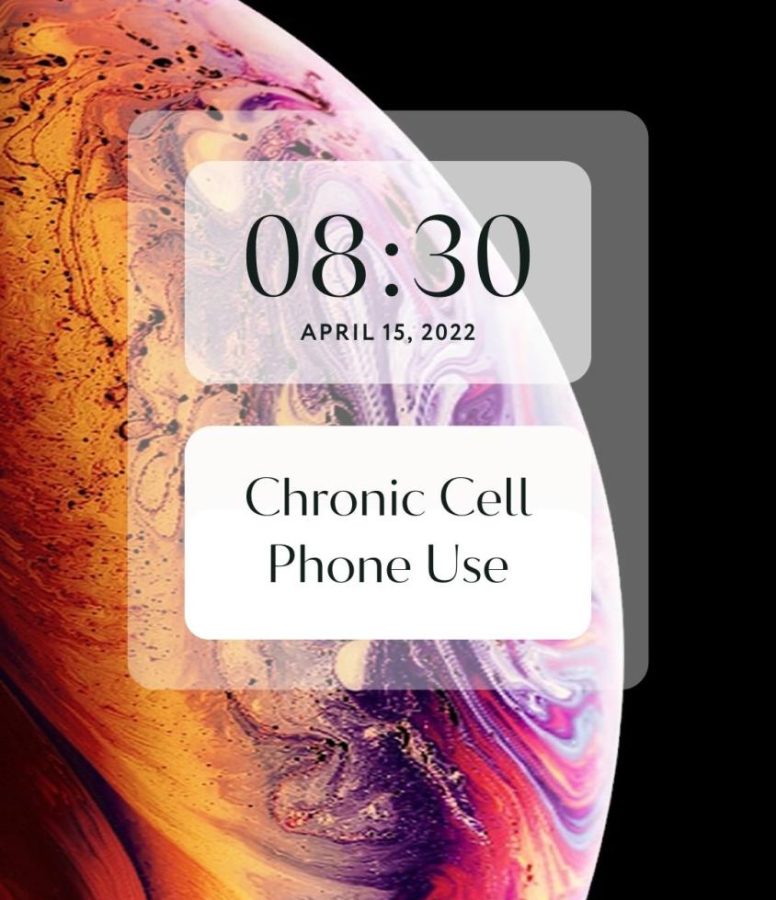Chronic Cell Phone Use
People use their cell phones for multiple hours every single day. These numbers are higher than they have ever been before and will continue to rise.
People use their cell phones for multiple hours every single day. These numbers are higher than they have ever been before and will continue to rise.
You get home from school after a long day, during which you promised yourself you are going to study for that test, finish that assignment, or even get some time outside. What is distracting you from becoming the best version of yourself?
Not to sound like a totally lame adult, but it’s probably your phone. Research shows that in the US, teens spend about nine hours on screens, not including school work. This takes about 37.5% of a 24 hour day, add this up to school, eating, and sleeping, you barely get any time to get stuff you need to get done or spend time with family and friends.
Spending time on your phone, Xbox, or laptop is not inherently bad, however, it can very easily become a problem. ‘Nomophobia’ is a word to describe a psychological condition where people have a fear of being detached from their devices. This may seem extreme, but when was the last time you went somewhere without your phone?
Sophomore Marina Santos admits that she can be dependent when it comes to her phone.
“I take my phone everywhere I can, and when I forget it at home I usually go back and get it… I’m constantly checking it and talking to my friends and family on it.”
If we look into the bigger picture of this problem, we have to look at the chemical our brain craves- dopamine. Originally, the release of dopamine was and still is a survival tool. For example, dopamine releases when we eat, causing us to continually fuel our bodies for survival.
Apps are designed to program our brains. Our brain associates the ASMR videos, Instagram posts, and endless scrolling on TikTok as a source of dopamine, making cell phone use a habit.
According to the Liberty handbook, ‘All phones must be put away, and ringers silenced before entering the classroom. Phones in use or view during class time may be confiscated by staff.’ Many teachers at Liberty have different rules and policies when it comes to cell phone usage in classrooms. As a first-year teacher Mr. Capper, math, has a stricter phone policy than most teachers, as he recognizes the grip that cell phones have on some students.
“It’s become so convenient that we are connected all the time, that everyone just naturally assumes that any time of day, that they can and should use the technology that we have, and that is understandable, but that also disrupts the student’s school setting,” commented Capper.
However, the answer shouldn’t be increasing the strictness of the cell phone policy. According to Capper, parents are sometimes the ones that contribute to this issue.
“Particularly, it’s frustrating when parents are spending time during the day texting their children when their children are supposed to be in class, and of course [they] expect them to respond… parents are not on board with the school’s cell phone policy and I think that’s where it needs to start.”
On the flip side, Mr. Borchert, English, doesn’t enforce this cell phone policy as much as Capper.
In regards to forcing this policy, Borchert states, “I’m not very strict with phones, I should be more strict, probably, I’ll have fewer problems with phones if I were more strict about it.”
However, Capper and Borchert both agree on one thing- cell phones addiction can be a recurring problem in the classroom.
“I certainly see signs of cell phone addiction [in the classroom]… but lots of adults I know have phone addictions too, so I don’t think it’s necessarily unique to students.” joked Borchert.
Overall, cell phone use consumes this generation. As technology gets more advanced, we will most likely become more and more addicted. In reality, everyone uses their phones on a daily basis and every once in a while, it’s beneficial to put it down and do something that doesn’t involve using your phone.

Megan is a senior at Liberty. This is her third year on staff and she is the editor-in-chief for the 2023-2024 school year. She is involved in theatre,...

Chloe is a senior at Liberty and this is her second year on staff. At Liberty, Chloe is involved in cheerleading and tennis. Outside of school, she enjoys...













